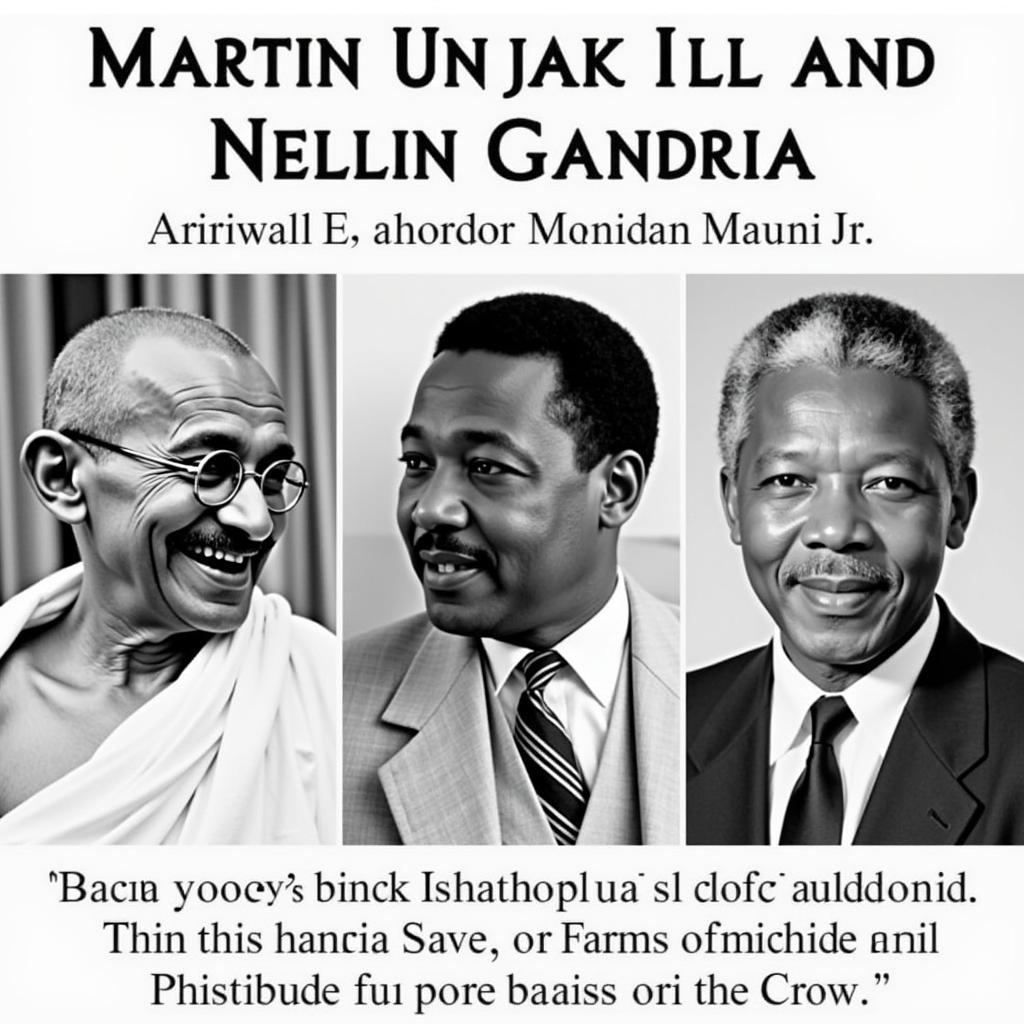The term “Rebel Society” often evokes images of defiance, upheaval, and even violence. It conjures thoughts of groups challenging authority, disrupting the status quo, and fighting for change. But can a rebel society be a force for peace? Can rebellion be a catalyst for positive transformation, leading to a more just and harmonious world?
Redefining Rebellion: Beyond Violence and Destruction
It’s crucial to recognize that rebellion takes many forms. While history is replete with examples of violent uprisings and revolutions, it’s important to remember that rebellion isn’t inherently synonymous with aggression or destruction. In the context of peacebuilding, a rebel society can represent a powerful force for positive change. Think of individuals and groups who challenge oppressive systems, fight for social justice, and advocate for equality through non-violent resistance and civil disobedience. These “rebels” choose peace as their weapon, recognizing that lasting change often arises from dialogue, understanding, and compassion.
The Power of Peaceful Resistance: Case Studies in Courage
Throughout history, movements led by figures like Mahatma Gandhi, Martin Luther King Jr., and Nelson Mandela have demonstrated the extraordinary power of peaceful rebellion. These leaders, and countless others like them, dared to challenge deeply entrenched systems of injustice, inspiring millions to join their struggle for a more equitable world.
- Gandhi’s Satyagraha movement: This non-violent resistance movement was instrumental in India’s struggle for independence from British rule. Gandhi’s philosophy of truth and non-violence proved that profound political and social change could be achieved without resorting to violence.
- The Civil Rights Movement in the United States: Led by figures like Martin Luther King Jr., this movement challenged racial segregation and discrimination through peaceful protests, sit-ins, and marches, ultimately leading to significant legal and social reforms.
- The struggle against apartheid in South Africa: Nelson Mandela and the African National Congress spearheaded a decades-long fight against apartheid, employing a combination of peaceful protests, international pressure, and civil disobedience to dismantle the racist regime.
 Historical Leaders of Peaceful Rebellion
Historical Leaders of Peaceful Rebellion
Nurturing a Rebellious Spirit for Peace: The Role of Dialogue and Empathy
These examples illustrate that a rebel society doesn’t necessarily equate to chaos and destruction. Instead, it can represent a powerful force for peace when guided by principles of non-violence, dialogue, and empathy. These rebel societies recognize the interconnectedness of humanity, understanding that true peace necessitates addressing the root causes of conflict, such as poverty, inequality, and discrimination.
- Dialogue: Open and honest communication is paramount. Rebel societies committed to peace prioritize dialogue as a means to bridge divides, foster understanding, and find common ground.
- Empathy: Stepping into the shoes of the “other” is crucial. Cultivating empathy allows us to see the world through different lenses, to understand the perspectives of those who may hold different views, and to humanize those we may perceive as different.
Can a Rebel Society Lead Us to a More Peaceful World?
The answer lies in the choices we make. A rebel society, fueled by a desire for positive change and guided by the principles of peace, has the potential to transform our world. By embracing dialogue, nurturing empathy, and challenging injustice through non-violent means, we can create a world where peace is not just an aspiration but a lived reality.
However, it’s crucial to acknowledge that the path to peace is rarely linear or easy. Setbacks and challenges are inevitable. Yet, history teaches us that even in the face of adversity, the human spirit’s capacity for resilience, compassion, and the unwavering pursuit of peace remains a powerful force for change.
Rebel Society: Frequently Asked Questions
- What are some examples of rebel societies throughout history that have promoted peace? The anti-apartheid movement in South Africa, the Civil Rights Movement in the United States, and the Indian independence movement led by Mahatma Gandhi are all powerful examples.
- How can I become part of a rebel society that advocates for peace? Start by engaging in your local community. Support organizations working towards peacebuilding, participate in peaceful protests, and educate yourself on issues related to social justice and conflict resolution.
- Is it always possible to achieve peace through non-violent means? While non-violence should always be the goal, there may be situations where it’s necessary to explore other means of conflict resolution, such as diplomacy or international intervention.
For more information and resources on peacebuilding and conflict resolution, you can explore these articles:
- Dead Poets Society The Screenplay: Explore the power of challenging societal norms and finding your voice through this insightful screenplay analysis.
- Black Label Society Wallpaper: Discover the power of music and art in inspiring change and expressing dissent.
- Dead Poets Society Setlist: Explore the connection between music and social movements through this curated setlist inspired by the film “Dead Poets Society.”
We are here to support your journey towards peace. If you need any assistance or guidance, please contact our team at:
Phone Number: 02043854663
Email: [email protected]
Address: Khu 34, Bac Giang, 260000, Vietnam
Our dedicated customer support team is available 24/7 to assist you.